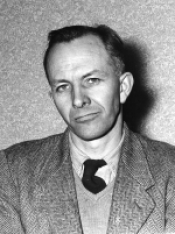Related Research Articles

Sir Oswald Ernald Mosley, 6th Baronet was a British politician during the 1920s and 1930s who rose to fame when, having become disillusioned with mainstream politics, he turned to fascism. He was a member of parliament and later founded and led the British Union of Fascists (BUF).

The British Union of Fascists (BUF) was a British fascist political party formed in 1932 by Oswald Mosley. Mosley changed its name to the British Union of Fascists and National Socialists in 1936 and, in 1937, to the British Union. In 1939, following the start of the Second World War, the party was proscribed by the British government and in 1940 it was disbanded.

The Imperial Fascist League (IFL) was a British fascist political movement founded by Arnold Leese in 1929 after he broke away from the British Fascists. It included a blackshirted paramilitary arm called the Fascists Legion, modelled after the Italian Fascists. The group espoused antisemitism and the dominance of the 'Aryan race' in a 'Racial Fascist Corporate State', especially after Leese met Nazi Party propagandist Julius Streicher, the virulently racist publisher of Der Stürmer; the group later indirectly received funding from the Nazis. Although it had only between 150 and 500 members at maximum, its public profile was higher than its membership numbers would indicate.

The Flash and Circle is a fascist symbol used by several organisations. It was first used by the British Union of Fascists (BUF), and was adopted in 1935.

The National Socialist League (NSL) was a short-lived Nazi political movement in the United Kingdom immediately prior to the Second World War.

Rotha Beryl Lintorn Lintorn-Orman was the founder of the British Fascisti, the first avowedly fascist movement to appear in British politics.

Edward Jeffrey Hamm was a leading British fascist and supporter of Oswald Mosley. Although a minor figure in Mosley's prewar British Union of Fascists, Hamm became a leading figure after the Second World War and eventually succeeded as leader of the Union Movement after Mosley's retirement.
Thomas P. Moran was a leading member of the British Union of Fascists and a close associate of Oswald Mosley. Initially a miner, Moran later became a qualified engineer. He joined the Royal Air Force at 17 and later served in the Royal Naval Reserve as an engine room artificer.

Alexander Raven Thomson, usually referred to as Raven, was a Scottish politician and philosopher. He joined the British Union of Fascists in 1933 and remained a follower of Oswald Mosley for the rest of his life. Thomson was considered to be the party's chief ideologue and has been described as the "Alfred Rosenberg of British fascism".
Robert Forgan was a British politician who was a close associate of Oswald Mosley.

Jorian Edward Forwood Jenks was an English farmer, environmentalism pioneer and fascist. He has been described as "one of the most dominant figures in the development of the organic movement".
British fascism is the form of fascism which is promoted by some political parties and movements in the United Kingdom. It is based on British ultranationalism and imperialism and had aspects of Italian fascism and Nazism both before and after World War II.

The Union Movement (UM) was a far-right political party founded in the United Kingdom by Oswald Mosley. Before the Second World War, Mosley's British Union of Fascists (BUF) had wanted to concentrate trade within the British Empire, but the Union Movement attempted to stress the importance of developing a European nationalism, rather than a narrower country-based nationalism. That has caused the UM to be characterised as an attempt by Mosley to start again in his political life by embracing more democratic and international policies than those with which he had previously been associated. The UM has been described as post-fascist by former members such as Robert Edwards, the founder of the pro-Mosley European Action, a British pressure group and monthly newspaper.
Neil Lanfear Maclean Francis Hawkins was a British writer and politician who was a leading proponent of British fascism in the United Kingdom both before and after the Second World War. He played a leading role in the British Union of Fascists and controlled the organisational structure of the movement.
Henry Maxence Cavendish Drummond Wolff, commonly known as Henry Drummond Wolff, was a British Conservative Party politician. Drummond Wolff was known for his close ties to the far right.
Action was a newspaper of Oswald Mosley's British Union of Fascists (BUF). The paper first appeared in 1936. The editor of the paper from 1939 was Alexander Raven Thomson, the BUF's chief ideologue. It ceased publication in 1940 due to the outbreak of the Second World War and the internment of the BUF's leadership. In fact the British government banned the paper. For most of its existence, Action ran parallel to the official mouthpiece of the BUF, The Blackshirt. After the launch of the less hard-line and more intellectual Action, The Blackshirt became more low-brow and finally ceased publication in 1939.

Robert Row (1915–1999) was an English fascist from Lancaster, a member of Oswald Mosley's British Union of Fascists (BUF) who was detained by the British government under Defence Regulation 18B during the Second World War. After the war, he wrote and edited British fascist publications and remained a believer in Mosley until his death.

The Friends of Oswald Mosley (FOM) is the last vestige of Oswald Mosley's British Union of Fascists (BUF) and its successors, the Union Movement and the Action Party.

John Warburton was an English fascist and press photographer. He was an assistant district leader for the Clapham branch of Sir Oswald Mosley's British Union of Fascists (BUF) before the Second World War, and afterwards was a key member of the Union Movement, the founder editor of Comrade, and the senior Council member of Friends of Oswald Mosley.

Charles Frederick Watts was a member of the British Union of Fascists who was interned during the Second World War.